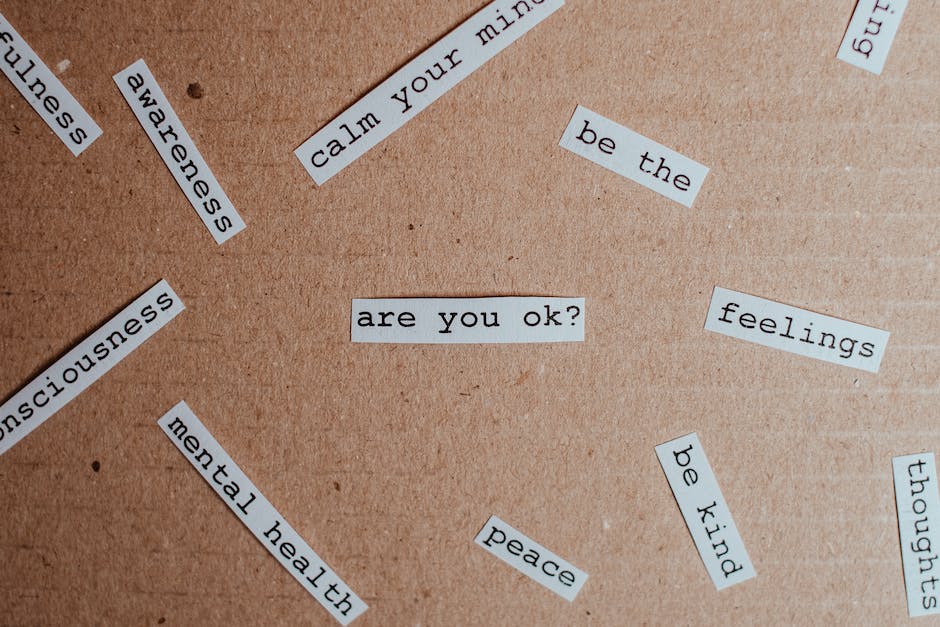Table of Contents
“The Power of Understanding: Bridging Divides through Cultural Awareness”
Introduction
Introduction:
Cultural awareness plays a crucial role in conflict resolution. Understanding and appreciating different cultures, their values, beliefs, and practices can help individuals and groups navigate conflicts more effectively. By recognizing cultural differences, individuals can develop empathy, respect, and open-mindedness, which are essential for finding common ground and resolving conflicts peacefully. This paper explores the significance of cultural awareness in conflict resolution and highlights its potential to foster understanding, communication, and cooperation among diverse individuals and communities.
The Importance of Cultural Awareness in Conflict Resolution

The role of cultural awareness in conflict resolution is of utmost importance. In today’s globalized world, conflicts arise not only between individuals but also between different cultures and societies. These conflicts can be fueled by misunderstandings, stereotypes, and a lack of understanding of each other’s cultural backgrounds. Therefore, it is crucial to recognize the significance of cultural awareness in resolving conflicts effectively.
Cultural awareness refers to having knowledge and understanding of different cultures, including their values, beliefs, customs, and traditions. It involves recognizing and appreciating the diversity that exists among individuals and communities. When it comes to conflict resolution, cultural awareness plays a vital role in several ways.
Firstly, cultural awareness helps in promoting empathy and understanding. By understanding the cultural context of a conflict, individuals can better empathize with the perspectives and experiences of others. This understanding allows for more effective communication and negotiation, as it helps to bridge the gap between different cultural norms and expectations.
Secondly, cultural awareness helps in avoiding misunderstandings and misinterpretations. Conflicts often arise due to miscommunication or misinterpretation of actions or words. By being culturally aware, individuals can recognize and interpret the underlying meanings and intentions behind certain behaviors or statements. This understanding can prevent conflicts from escalating and can lead to more productive and peaceful resolutions.
Furthermore, cultural awareness fosters respect and appreciation for diversity. In a conflict situation, individuals may hold different values, beliefs, or opinions based on their cultural backgrounds. By being aware of these differences, individuals can approach conflicts with an open mind and a willingness to learn from each other. This respect for diversity can lead to more inclusive and collaborative conflict resolution processes.
Moreover, cultural awareness helps in identifying common ground and shared values. Despite cultural differences, there are often shared values and goals that can be used as a basis for resolving conflicts. By understanding the cultural context, individuals can identify these commonalities and use them as a starting point for finding mutually acceptable solutions. This approach promotes cooperation and harmony, as it focuses on finding common ground rather than emphasizing differences.
Additionally, cultural awareness contributes to the development of effective conflict resolution strategies. Different cultures may have different approaches to conflict resolution, such as direct confrontation or indirect communication. By being aware of these cultural differences, individuals can adapt their conflict resolution strategies accordingly. This flexibility allows for more effective and culturally sensitive resolutions, as it takes into account the unique needs and preferences of each culture involved.
In conclusion, cultural awareness plays a crucial role in conflict resolution. It promotes empathy, understanding, and respect for diversity, while also helping to avoid misunderstandings and identify common ground. By recognizing the significance of cultural awareness, individuals can approach conflicts with a more open mind and a willingness to learn from each other. This approach leads to more effective and peaceful resolutions, ultimately contributing to a more harmonious and inclusive society.
Strategies for Enhancing Cultural Awareness in Conflict Resolution
Strategies for Enhancing Cultural Awareness in Conflict Resolution
In today’s globalized world, cultural diversity is becoming increasingly prevalent. As a result, conflicts arising from cultural differences are also on the rise. Resolving these conflicts requires a deep understanding and appreciation of different cultures. This is where cultural awareness plays a crucial role. By developing strategies to enhance cultural awareness, individuals and organizations can effectively navigate conflicts and promote peaceful resolutions.
One strategy for enhancing cultural awareness in conflict resolution is education. Education provides individuals with the knowledge and understanding of different cultures, their values, beliefs, and customs. By learning about different cultures, individuals can develop empathy and respect for others, which are essential in resolving conflicts. Educational programs can be designed to teach individuals about cultural diversity, cultural sensitivity, and effective communication across cultures.
Another strategy is exposure to different cultures. By immersing oneself in different cultural experiences, individuals can gain firsthand knowledge of different customs and traditions. This exposure can be achieved through travel, cultural exchange programs, or even through interactions with individuals from different cultural backgrounds. By experiencing different cultures, individuals can develop a broader perspective and a deeper understanding of cultural differences, which can be invaluable in conflict resolution.
Active listening is another important strategy for enhancing cultural awareness in conflict resolution. Active listening involves not only hearing what the other person is saying but also understanding their perspective and emotions. In a conflict situation, active listening allows individuals to truly understand the underlying cultural factors that may be contributing to the conflict. By actively listening, individuals can avoid making assumptions or generalizations about the other person’s culture and instead focus on finding common ground and mutually beneficial solutions.
Building relationships and fostering open dialogue is also crucial in enhancing cultural awareness in conflict resolution. By establishing trust and rapport with individuals from different cultures, conflicts can be approached with a greater level of understanding and respect. Building relationships allows individuals to learn from one another, share experiences, and find commonalities. Open dialogue encourages individuals to express their thoughts and feelings openly, which can lead to a deeper understanding of cultural differences and ultimately, more effective conflict resolution.
Lastly, self-reflection is an essential strategy for enhancing cultural awareness in conflict resolution. Individuals must examine their own biases, prejudices, and assumptions about different cultures. By reflecting on their own cultural background and beliefs, individuals can become more aware of how their own perspectives may influence their interactions with others. Self-reflection allows individuals to challenge their own biases and develop a more open-minded and inclusive approach to conflict resolution.
In conclusion, cultural awareness plays a vital role in conflict resolution. By developing strategies to enhance cultural awareness, individuals and organizations can navigate conflicts arising from cultural differences more effectively. Education, exposure to different cultures, active listening, building relationships, fostering open dialogue, and self-reflection are all strategies that can contribute to enhancing cultural awareness. By embracing cultural diversity and promoting cultural awareness, conflicts can be resolved in a more respectful, inclusive, and peaceful manner.
Cultural Sensitivity in Conflict Resolution: Key Considerations
The Role of Cultural Awareness in Conflict Resolution
Cultural sensitivity plays a crucial role in conflict resolution. In today’s globalized world, conflicts often arise between individuals or groups with different cultural backgrounds. These conflicts can be fueled by misunderstandings, stereotypes, and a lack of awareness about the cultural norms and values of others. Therefore, it is essential to develop cultural awareness as a key consideration in conflict resolution.
Cultural awareness involves recognizing and understanding the beliefs, values, customs, and behaviors of different cultures. It requires individuals to be open-minded and willing to learn about and respect the diversity of others. By developing cultural awareness, individuals can gain a deeper understanding of the perspectives and motivations of those involved in a conflict, which can lead to more effective conflict resolution.
One way cultural awareness contributes to conflict resolution is by promoting empathy and understanding. When individuals are aware of the cultural context in which a conflict arises, they can better understand the underlying reasons behind the actions and behaviors of others. This understanding can help reduce negative assumptions and stereotypes, allowing for more empathetic and constructive communication.
Moreover, cultural awareness helps individuals recognize and address cultural biases and prejudices that may contribute to conflicts. By acknowledging their own cultural biases, individuals can approach conflicts with a more open and unbiased mindset. This self-awareness allows for a more objective assessment of the situation and a greater willingness to find common ground and compromise.
Cultural awareness also plays a significant role in communication during conflict resolution. Different cultures have distinct communication styles, norms, and non-verbal cues. Without cultural awareness, misinterpretations and misunderstandings can easily occur, leading to further escalation of conflicts. However, by being aware of these cultural differences, individuals can adapt their communication strategies to ensure effective and respectful dialogue.
In addition, cultural awareness helps individuals navigate cultural taboos and sensitivities that may be present in a conflict. Certain topics or actions may be considered offensive or disrespectful in one culture but not in another. By being aware of these cultural sensitivities, individuals can avoid inadvertently causing further harm or escalating the conflict.
Furthermore, cultural awareness promotes inclusivity and diversity in conflict resolution processes. When individuals are knowledgeable about different cultural perspectives, they can ensure that all voices are heard and respected. This inclusivity fosters a sense of fairness and equality, which is crucial for successful conflict resolution.
In conclusion, cultural awareness is a vital consideration in conflict resolution. By developing cultural awareness, individuals can gain a deeper understanding of the perspectives and motivations of those involved in a conflict. This understanding promotes empathy, reduces biases, and improves communication. Cultural awareness also helps individuals navigate cultural sensitivities and promotes inclusivity in conflict resolution processes. Therefore, it is essential to prioritize cultural sensitivity as a key aspect of conflict resolution to foster understanding, respect, and effective resolution of conflicts in our diverse world.
Case Studies: Successful Conflict Resolution through Cultural Awareness
The Role of Cultural Awareness in Conflict Resolution
Conflict is an inevitable part of human interaction, and it can arise in various contexts, such as personal relationships, workplaces, or even between nations. Resolving conflicts effectively requires a deep understanding of the underlying causes and dynamics at play. One crucial factor that often influences conflicts is cultural differences. Cultural awareness, therefore, plays a significant role in conflict resolution.
Cultural awareness refers to the ability to recognize and appreciate the values, beliefs, customs, and behaviors of different cultures. It involves being open-minded and respectful towards diverse perspectives and ways of life. In the context of conflict resolution, cultural awareness helps individuals and groups understand the root causes of conflicts and find mutually acceptable solutions.
Successful conflict resolution through cultural awareness can be observed in various case studies. One such example is the conflict between two neighboring communities in a rural area. The communities had been engaged in a long-standing dispute over land ownership. The conflict escalated to the point where violence seemed inevitable. However, a mediator with a deep understanding of the cultural backgrounds of both communities was able to facilitate a resolution.
The mediator recognized that the conflict was not solely about land ownership but also rooted in historical grievances and cultural misunderstandings. By creating a safe space for dialogue and actively listening to the concerns of both communities, the mediator was able to uncover the underlying issues. Through this process, the communities realized that their shared history and cultural heritage could be a source of unity rather than division. They were able to reach a compromise that satisfied both parties and fostered a sense of reconciliation.
Another case study that highlights the role of cultural awareness in conflict resolution is the negotiation between a multinational corporation and a local indigenous community. The corporation had plans to build a factory on land that held significant cultural and spiritual value for the indigenous community. The initial negotiations were fraught with tension and mistrust, as the corporation failed to understand the cultural significance of the land.
However, a shift occurred when the corporation hired a cultural consultant who had a deep understanding of the indigenous community’s values and traditions. The consultant helped bridge the gap between the two parties by facilitating cultural exchanges and educating the corporation about the importance of the land. This newfound cultural awareness allowed the corporation to modify its plans and find alternative solutions that respected the community’s cultural heritage while still meeting its business objectives.
These case studies demonstrate that cultural awareness is not just a nice-to-have but an essential component of conflict resolution. Without a genuine understanding and appreciation of different cultures, conflicts can escalate and become intractable. Cultural awareness allows individuals and groups to move beyond stereotypes and biases, fostering empathy and promoting effective communication.
To cultivate cultural awareness, individuals and organizations can engage in various activities. These may include attending cultural events, participating in diversity training programs, or seeking guidance from cultural experts. It is also crucial to approach conflicts with an open mind and a willingness to learn from others’ perspectives.
In conclusion, cultural awareness plays a vital role in conflict resolution. By understanding and appreciating different cultures, individuals and groups can uncover the underlying causes of conflicts and find mutually acceptable solutions. The case studies discussed highlight the transformative power of cultural awareness in resolving conflicts and fostering reconciliation. Cultivating cultural awareness is an ongoing process that requires open-mindedness, empathy, and a commitment to learning from diverse perspectives.
Q&A
1. What is cultural awareness in conflict resolution?
Cultural awareness in conflict resolution refers to understanding and recognizing the cultural differences and perspectives of individuals involved in a conflict.
2. Why is cultural awareness important in conflict resolution?
Cultural awareness is important in conflict resolution as it helps to foster understanding, empathy, and respect for diverse cultural backgrounds, which can lead to more effective communication and collaboration in resolving conflicts.
3. How does cultural awareness contribute to conflict resolution?
Cultural awareness contributes to conflict resolution by promoting open-mindedness, reducing misunderstandings, and facilitating the identification of common ground and shared values among conflicting parties.
4. What are some strategies to enhance cultural awareness in conflict resolution?
Strategies to enhance cultural awareness in conflict resolution include active listening, seeking to understand different cultural perspectives, educating oneself about different cultures, and promoting inclusive and respectful dialogue among conflicting parties.
Conclusion
In conclusion, cultural awareness plays a crucial role in conflict resolution. It helps individuals understand and appreciate different perspectives, values, and beliefs, leading to effective communication and collaboration. By recognizing cultural differences and promoting empathy, conflicts can be addressed with respect and understanding, fostering peaceful resolutions and promoting harmony among diverse groups.




